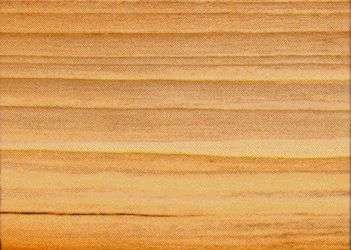
Arlak arong (Kydia calycina)
Family: Malvaceae
Common names: Arlak arong, Arlakso-arong, Baluma-shaw, Balumashaw, Bankopasia, Bargha, Barranga, Belagu, Bellaka, Bende, Bende-narl, Bendi, Bharanga, Bharmio, Bhendi, Bhoti, Bicra, Billlulhendi, Billu-bhendi, Bitabororo, Bitagoinr, Bitha gonyer, Bittia, Bokemaiza, Boldobak, Boldobard, Bonkopah, Bosha, Burkapa, Buruk, Changne, Charpili, Choupultea, Crukutada, Derhi, Derki, Dhamin, Dieng-jannep, Dieng-misri, Dwabok, Dwabote, Dwakbok, Dwalok tabo, Gommer, Heppaching, Illya, Kadubende, Kakahi, Khopashya, Kolibende, Kondapathi, Kondapatti, Kondapotari, Kopasia, Kubinde, Kukuha, Kung ho-sa, Kunji, Magan-kaji, Magap, Mahow, Meikyat, Mhotihirwani, Modon-phang, Moshongon, Motipotari, Myethlwa, Nayibende, Nedunar, Nihotilirwani, Pachhbotuka, Palao, Pandiki, Parak, Patadhamin, Patha, Pattra, Pedda-kunji, Peddakusiji, Peddapotri, Petshat, Pillu, Pitchola, Pola, Poshkaolat, Poskaolat, Potari, Potasi, Potri, Puka olat, Pula, Pulan, Pulao, Puli, Pulian, Putai, Puttiya, Ran-bhendi, Safed, Safeddhaman, Sedangtagla, Sedangtaglar, Starmisri-arong, Tabri, Tagla, Tayanni, Tayawni, Thari, Varanga, Varangada, Varung, Vayakannu, Veembu, Vella-chadachi, Velukku, Vendai, Venta, Wala, Warang
Distributed in: Burma, India (Oceania and S.E. Asia)
Common uses: Agricultural implements, Boat building (general), Boxes and crates, Brush backs & handles, Carvings, Charcoal, Fuelwood, Heavy construction, Light construction, Matches, Oars, Pencil, Plywood, Pulp/Paper products, Textile equipment, Toys, Vehicle parts, Veneer
Tree size: Tree height is 30-40 m
Colors: the heart isPurple, Redand the sapwoodWell defined, White to yellow.The grain isStraight, the textureMedium to coarse
Natural durability: Sapwood is susceptible to wood staining fungal attack, Susceptible to insect attack
Kiln Drying Rate: Naturally dries slowly
Drying Defects: No end splitting, Splitting
Ease of Drying: Slowly
Tree Identification: Bole/stem form is straight
Comments: General finishing qualities are rated as good
Cutting Resistance: Cutting Resistance with green wood is easy
Nailing: Fairly Easy to Very Easy, Very Good to Excellent
Planing: Very Good to Excellent
Resistance to Impregnation: Permeable sapwood
Response to hand tools: Easy to machine
Veneering qualities: Veneers easily, Veneers moderately easy
- Numerical data Metric
- Numerical data English
- Strength properties
- References
 |
 |
 |
 |
| Item |
Green |
Dry |
Metric |
| Specific Gravity |
|
|
|
| Density |
|
576 |
kg/m3 |
| Bending Strength |
176 |
254 |
kg/cm2 |
| Crushing Strength |
150 |
275 |
kg/cm2 |
| Hardness |
|
|
kg |
| Impact Strength |
|
38 |
cm |
| Shearing Strength |
|
|
kg/cm2 |
| Stiffness |
71 |
84 |
1000 kg/cm2 |
| Tangential Shrinkage |
|
|
% |
| Radial Shrinkage |
|
|
% |
| Weight |
|
|
kg/m3 |
| Maximum Load |
|
|
cm-kg/cm3 |
| Toughness |
|
|
cm-kg |
| Static Bending |
|
|
kg/cm2 |
|
 |  |  |  | | Item | Green | Dry | English | | Bending Strength | 2509 | 3623 | psi | | Density | | 36 | lbs/ft3 | | Impact Strength | | 15 | inches | | Maximum Crushing Strength | 2139 | 3916 | psi | | Stiffness | 1017 | 1199 | 1000 psi | | Weight | 35 | 27 | lbs/ft3 | |
Toughness-Hammer drop (Impact Strength) = very low
Modulus of Elasticity (stiffness) = very low
Max. crushing strength = low
Density (dry weight) = 46-52 lbs/cu. ft.
Density (dry weight) = 38-45 lbs/cu. ft.
Density (dry weight) = 31-37 lbs/cu. ft.
Density (dry weight) = 23-30 lbs/cu. ft.
Bending strength (MOR) = very low
Bhat, R.V.,1970,Pulping of Tropical Hardwoods,Indian Pulp and Paper Technology Association IPPTA,7(3,pp203-214Blatter, E., Millard, W.S.,1937,Some Beautiful Indian Trees,John Bale, Sons & Cornow Ltd, LondonBourdillon, T.F.,1908,The Forest Trees of Travancore,Travancore Government PressChowdhury, K.A., Ghosh, S.S.,1958,Indian Woods: Their identification, properties and uses Vol. I,Dilleruaceae to Elaeocarpaceae,Manager of Publications, Delhi, IndiaGamble, J.S.,1902,A Manual of Indian Timbers,Sampson Low, Marston & Co. LondonNazma,1981,A handbook of Kerala Timbers,Kerala Forest Research Institute Research Report, No.9Pearson, R.S., Brown, H.P.,1932,Commercial Timbers of India,Govt. Printer Calcutta,2 vols
|








